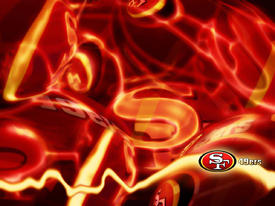We are pleased to announce that on March 4, 2025, an updated Rich Text Editor will be introduced in the MyFitnessPal Community. To learn more about the upcoming changes, please click here. We look forward to sharing this new feature with you!
Understanding body fat %

mlb929
Posts: 1,974 Member
I'm just curious, I bought a scale with a body fat % on it. I generally use a very expensive high quality one for athletic teams, but for convenience, I opted for just a simple one to use daily. It's my own thing, please don't try to convince me not to weigh every day, that's not my question.
I'm trying to figure out why - my body fat % would vary so greatly from day to day. Example - Friday - I was at 22%, my goal is about 20%. But when I checked today - no weight change, I did run 12 miles on Saturday, but I ate very well and my diet is spot on. But my body fat % today was at 24.9%.
My hydration levels on both days - because it was first thing in the AM - were about at 55%. I know that better hydration helps. I also know with athletic or more lean bodies, these bathroom scales are less accurate. I'm really just using it as a tool for my own mindset.
But... that said - I'm reading the book Racing Weight to calculate my "ideal" weight - like where my goal weight wise would be with my goal body fat % . So in the calculation do I use the 22% or the 25% it makes a difference in the bottom line weight goal.
I'm trying to figure out why - my body fat % would vary so greatly from day to day. Example - Friday - I was at 22%, my goal is about 20%. But when I checked today - no weight change, I did run 12 miles on Saturday, but I ate very well and my diet is spot on. But my body fat % today was at 24.9%.
My hydration levels on both days - because it was first thing in the AM - were about at 55%. I know that better hydration helps. I also know with athletic or more lean bodies, these bathroom scales are less accurate. I'm really just using it as a tool for my own mindset.
But... that said - I'm reading the book Racing Weight to calculate my "ideal" weight - like where my goal weight wise would be with my goal body fat % . So in the calculation do I use the 22% or the 25% it makes a difference in the bottom line weight goal.
0
Replies
-
I am curious to hear what you find out. Normally when I hear people talk about variation in body fat % readings they reference hydration, but that sounds like you already factored that in.
Have you ever had hydrostatic weighing done? If no, you should try and find a healthcare organization that does it in your area and have that professional help explain the reason for varation with the scale you are using. My personal trainer has one of those hand-held body fat % machines that we used on me and I came up between 24-26% body fat, but when I had my body fat measured with hydrostatic weighing I came up at 20% (17% when the professional pinched me which is expected since the hydrostatic weighing and pinching normally has a 2-3% variance).
Anywho, I know I haven't been of any help, but wanted to chime in since it sounds like you are in a similar place with your weight loss/body fat goals that I am. Hopefully someone else chimes in and we both get some answers!
Good luck!
PS: I weigh myself every day too and don't see a problem with it! 0
0 -
Bump0
-
I have a body fat scale as well, and it's a good tool.
One tip I learned online, and it works, is to weigh yourself with wet feet. I use a water spray bottle to spray the scale where my feet go. The dampness is supposed to give a more accurate reading. I find it's been consistent since doing this.0 -
double post.0
-
the second most accurate way to measure your body fat is with calipers. I have a scale that breaks it down for me as well but its way off compared to what my trainer measured me at. My body fat is 13.8% the scale says its 20.0
-
Don't rely on bioelectric impedance readings (all scales read fat this way). Sodium and water fluctuations change the number easily.
Best way to observe body fat is your waistline. If you're female and can see your abs, you're more than likely within 15%-18% bf.
Males will usually be in the 10%-12% range. If you can't see them, you're obviously higher in body fat.
If you pinch the "fatty" area of your body (abs, thighs, back of arms, low back) and are pinching more than a half inch in thickness, then you body fat % is more than likely above 20%-25%.0 -
I have a bone density machine at work that uses imaging of whole body and can do body fat %. What do you all think of the accuracy of this type of test?0
-
Don't rely on bioelectric impedance readings (all scales read fat this way). Sodium and water fluctuations change the number easily.
Best way to observe body fat is your waistline. If you're female and can see your abs, you're more than likely within 15%-18% bf.
Males will usually be in the 10%-12% range. If you can't see them, you're obviously higher in body fat.
If you pinch the "fatty" area of your body (abs, thighs, back of arms, low back) and are pinching more than a half inch in thickness, then you body fat % is more than likely above 20%-25%.
Thank you - I won't worry as much about it then on the scale. I sure wish there was somewhere close that did accurate testing, there isn't.0 -
i found this bit of info at http://www2.gsu.edu/~wwwfit/bodycomp.html
Bioelectrical Impedence
Description: By standing barefoot on metal foot plates, an undetectably low voltage electric current is sent up one leg and down the other. Since fat is a very poor conductor of electricity, a lot of fat will impede the current more so than a lot of lean tissue. By measuring the resistance to the current, the machine estimates the percent body fat.
How accurate is it? BIA accuracy, if done correctly on properly operating equipment, is approximately +/- 3%. However, accuracy is dependant upon several client-based variables. It is recommended the following guidelines be followed:
Abstain from eating and drinking within 4 hours of the test
Avoid exercising within 12 hours of the test
Void (urinate) completely prior to testing
Do not drink alcohol within 48 hours of the test
Avoid taking diuretics prior to testing unless instructed by your physician0 -
I have a 6 year old body fat scale and 3 month old Omron Handheld Body Fat Monitor. They both give me the same reading. I trust both of them.
Different scales can give different weights. Same scale can give different weight. If I can trust that my scale is giving me a correct scale weight, then I shouldn't doubt that it's not giving me a correct body fat percentage.
I believe that body fat reading can fluctuate like scale weight can, under the same situations.0
This discussion has been closed.
Categories
- All Categories
- 1.4M Health, Wellness and Goals
- 394.3K Introduce Yourself
- 44K Getting Started
- 260.5K Health and Weight Loss
- 176.1K Food and Nutrition
- 47.5K Recipes
- 232.7K Fitness and Exercise
- 442 Sleep, Mindfulness and Overall Wellness
- 6.5K Goal: Maintaining Weight
- 8.6K Goal: Gaining Weight and Body Building
- 153.1K Motivation and Support
- 8.1K Challenges
- 1.3K Debate Club
- 96.4K Chit-Chat
- 2.5K Fun and Games
- 4K MyFitnessPal Information
- 16 News and Announcements
- 1.2K Feature Suggestions and Ideas
- 2.7K MyFitnessPal Tech Support Questions






